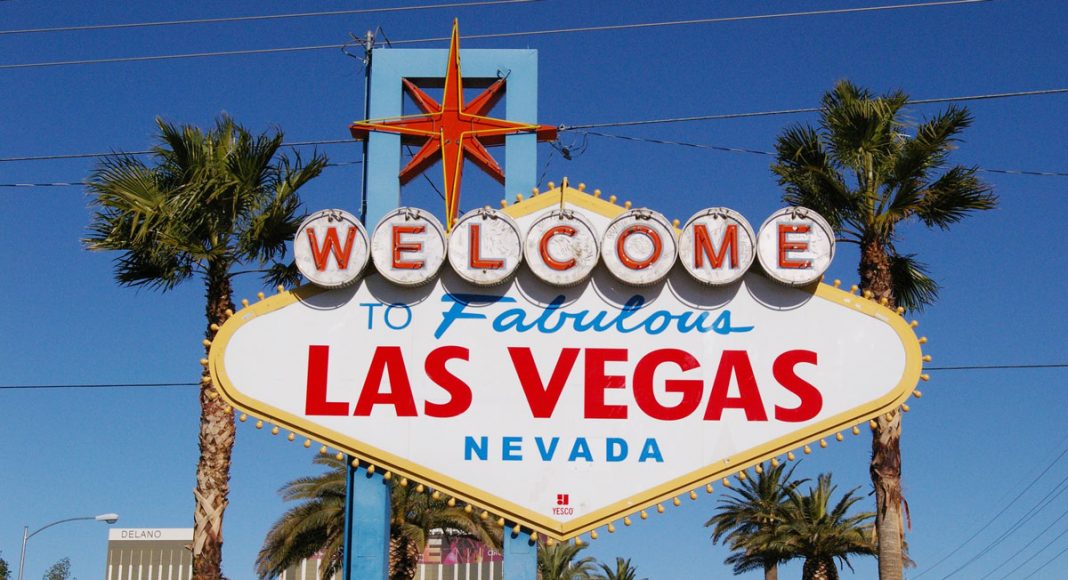Las Vegas is known for excess and vice; Sin City has been rife with gambling and showgirls since its inception. But these days, marijuana is the main attraction. According to Nevada state marijuana regulators, once June sales are tallied, the annual total is expected to exceed $500 million, putting tax revenue at approximately $70 million. About $25 million in tax revenue is designated for Nevada’s public and charter schools.
Pot pundit Mona Zhang tells Forbes that Nevada made $30 million in marijuana taxes during the first six months of sales.
These figures may seem staggering, but they are a drop in the bucket considering revenues in support of Nevada’s public K-12 schools for the fiscal year of 2014 were approximately $4.3 billion. This figure represents a decrease of 2.4 percent from the fiscal year 2009 when revenues totaled $4.5 billion, according to The National Center for Education Statistics.
-
Related Story: Study: Dispensary Locations Don’t Impact Teen Cannabis Use
Associated Press, via U.S. News and World Report, reported that Nevada earned more in its first six months of legalization in 2017 than Colorado did in 2014. This analysis is somewhat flawed. Why not compare cannabis revenue from each state during the same calendar or fiscal year?
Mr. Jerry Chin is an Enrolled Agent and California-based tax accountant. His clients in the cannabis industry include dispensaries, retailers, and growers.
“I concur that comparing first-year sales in Nevada in 2017 to first-year sales in Colorado in 2014 is comparing apples and oranges. The market, products, society, and all relevant factors are completely different in 2017 versus 2014.” said Chin.
Other factors that contribute to discrepancies are the supply shortage that occurred in Nevada when they first legalized marijuana, and the fact that Colorado has more stringent reporting of legal sales.
-
Related Story: 3 Types Of Marijuana Perfect For A Night In Las Vegas
According to the Colorado Department of Revenue, the unofficial weed capital of America raked in $1,507,702,219 from pot sales in 2017 – over a billion dollars more than Nevada in the same year. It seems Colorado is rolling in more dough.
“Colorado is unquestionably and empirically the leader in tax collection among legal states,” says Chin.
In the first five months of 2018, Colorado has collected $612,864,790, while according to Nevada’s Department of Taxation, their marijuana industry generated $30,376,795 in tax revenue for the state in the first six months. That means in the first half of 2018; Colorado smoked Nevada’s marijuana sales by 582,487,995.
Keep in mind, retail marijuana in Nevada is subject to the following taxes:
- 15 percent excise tax on the wholesale sale, paid by the cultivator
- 10 percent excise tax on the retail sale, paid by the retail store
- Retail sales tax at the local rate
- The 15 percent excise tax on the wholesale sale is calculated on the Fair Market Value at Wholesale, established by the Department of Taxation.
According to the government in Nevada, during the 2017 legislative session, the tax structure for medical marijuana was changed from 2 percent excise tax on each sale to 15 percent excise tax on the wholesale sale, paid by the cultivator.
This change means marijuana establishments that hold both medical registration certificates and retail licenses do not have to designate which portion of their inventory is medical, and which is retail. Marijuana inventory can be kept as a single stream until the point it is sold to the consumer. If it is sold to a retail customer, the additional 10 percent retail excise tax will be applied. If it is sold to a medical cardholder, the 10 percent will not be applied to the sale. Regular sales tax at the local rate will be charged to both medical and retail customers.
Revenue from the 15 percent wholesale excise tax will go toward Nevada schools (less the amount to cover the costs of the program for the state and local governments).
Revenue from the 10 percent retail excise tax will go the state Rainy Day Fund.
In Colorado, meanwhile, the state sales tax rate on all tangible personal property, including marijuana, is 2.9 percent. These taxes are charged on the final consumer purchase price. According to the Colorado Department of Revenue, there is a 15 percent state retail marijuana sales tax rate on all sales of retail marijuana and retail marijuana-infused products, charged on the final consumer purchase price. This tax rate increased from 10 percent to 15 percent on July 1, 2017.
-
Related Story: Canadian Marijuana Investors Are Banned From Entering The US
There was a 5 percent higher state sales tax on recreational marijuana In Nevada, than in Colorado, when the 2017 figures were calculated. That is a contributing factor as to why Nevada would appear to be in the lead. Now that the marijuana tax rates are equal in both states, it is anybody’s guess which state will raise the most green in 2018.
Marijuana tax arbitrage will become a competitive edge to those in the marijuana industry who can take advantage of differing tax rates across state borders.
A $500 million industry has created thousands of new jobs in Nevada in the short span of one year. Taxable marijuana sales are a massive contributor to the local economy through tax revenue, creating funding for schools, and through increased employment.


